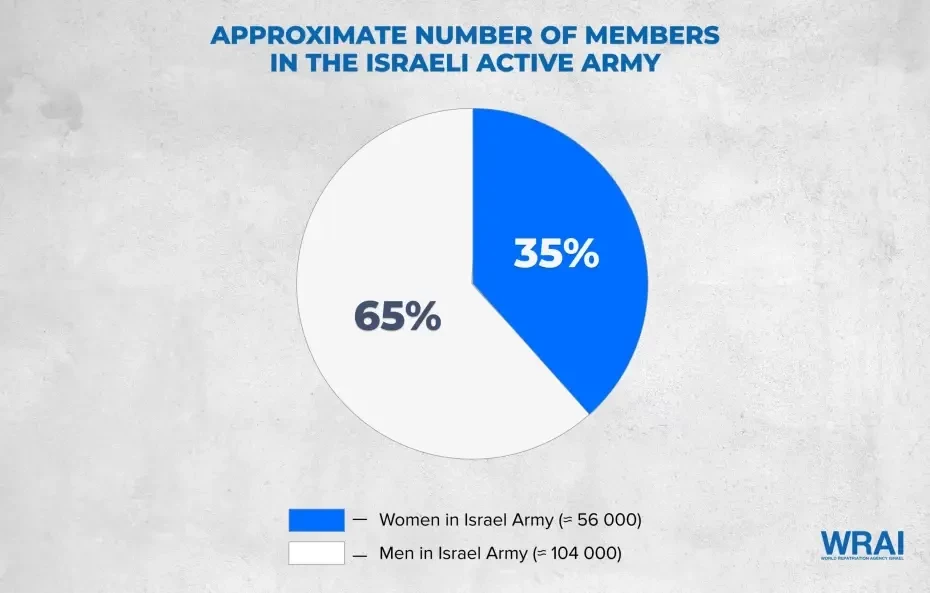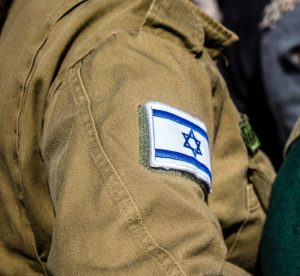Military Service in Israel
Israel is known not only for its resorts and quality medicine: the army is also a hallmark of the Jewish state, as it is considered one of the largest and most powerful in the world. The Israeli Defense Forces (IDF) is a powerful force and authority that is designed to ensure the security of the country. It is fair to say that there are two cults in Israel: religion and the army.
an Israeli citizenship specialist
Features of military service in Israel
 The army of Israel is built on military doctrine. Its provisions have not lost relevance for 70 years. The main points of this system state that the Israeli state is inferior to neighboring countries in number, so its inhabitants must be ready to fight for their territories. Also an important point of the doctrine concerns the right to national freedom of Israel: all conflict situations with neighboring states are considered a response to the non-acceptance of the fact of the existence of the Jewish people. The tense political situation in the Middle East and the constant armed conflicts with Arab countries are the reason for the improvement and strengthening of the Israeli army.
The army of Israel is built on military doctrine. Its provisions have not lost relevance for 70 years. The main points of this system state that the Israeli state is inferior to neighboring countries in number, so its inhabitants must be ready to fight for their territories. Also an important point of the doctrine concerns the right to national freedom of Israel: all conflict situations with neighboring states are considered a response to the non-acceptance of the fact of the existence of the Jewish people. The tense political situation in the Middle East and the constant armed conflicts with Arab countries are the reason for the improvement and strengthening of the Israeli army.
However, there are benefits for girls, which eventually enable most Israeli citizens to receive a deferment or exemption from military obligations. Young men are subject to conscription after reaching the age of 18. Even children of Jews who were born abroad receive a summons. After the end of regular service, members of any composition can be called up from the reserve: the period of training is up to 45 days. The reserve troops consist of citizens and residents of the country up to 40 years of age (for soldiers) and 45 years of age (for officers). One of the main questions that interest potential repatriates – whether military obligations apply to foreigners who have returned to their historical homeland. Israeli legislation is strictly defined: the rules of conscription apply to all persons of the appropriate age who are in the status of permanent residents of the country. Accordingly, repatriates are subject to conscription under the same conditions as native Israelis.
Israel Defense Forces Organization
All new recruits undergo a general preparatory course, “tironut,” which lasts about three months. The “young fighter course” prepares soldiers for constant physical exertion under difficult conditions and increases endurance. After the course, the recruits take an oath of allegiance to the Israeli people at the Wailing Wall. Young soldiers then disperse and serve according to their primary assignment.
There are three branches of the Israeli Defense Forces:
- The Ground Forces. This part of the Israel Defense Forces consists of the Northern, Central and Southern Districts. The ground forces include paratroopers, tanks, motorized infantry and infantry divisions. Also included are three artillery regiments and three battalions of reconnaissance troops.
- Air Force. The Israeli Air Force consists of four types of air forces: fighter, tactical, transport and reconnaissance. Much attention is paid to the development of unmanned aircraft systems, the organization of tactical air defense and training for the management of military equipment.
- Navy. Servants of this unit also specialize in various tasks: the Israeli Navy has a defined headquarters, intelligence, personnel management, maritime operations and logistics section. There are two other divisions – the submarine fleet and the port security system. The Israeli army boasts a nuclear division, missile defense complexes and a prestigious special unit – the secret intelligence service “Sayeret Matkal”. The armed forces are improving every year: new technologies appear, equipment is constantly modernized, and many processes are automated.
Military service for new repatriates
Despite the strict obligation to undergo army school, there are exceptions to the general rule: women who were repatriated after the age of 20 and men over the age of 30 if they have children are exempt from military service. All repatriates over the age of 28 who came to Israel for the first time are also exempt from joining the IDF. For all other new repatriates, there are favorable conditions. First and foremost is deferment. This opportunity is given to new residents of Israel so that they have time to adapt to life in the country. The first summons to the army (“tzav rishon”) comes only 9 months after receiving “teudat zeut” – an identity card.
In the process of determining the period of service for new repatriates, the following are taken into account:
- age at the time of arrival in Israel;
- marital status and family composition;
- general health condition – “medical profile”
It should be noted that the date of arrival is considered the first crossing of the border of the country (not necessarily for repatriation, but for the purpose of study or recreation). But this option is relevant only in cases of prolonged stay on the territory of Israel before a full-fledged move – from 120 days. Each case of conscription into the IDF is considered individually. This allows for a fair assignment of terms and conditions of service. If the date of arrival for new repatriates to Israeli lands is considered any day after August 1, 2015, the calculation is according to the new rules:
| Age at the time of arrival | Men | Married men | Married men with a child | Women | Married women or women with a child |
| 18-19 years old | 32 months | 24 months | exempted | 24 months | exempted |
| 20–21 years old | 24 months | 18 months | exempted | 12 months | exempted |
| 22–27 years old | optional, 18 months | optional, 18 months | exempted | optional, 12 months | exempted |
Married women receive an automatic exemption from military obligations at any age. Religious women can receive an exemption from the army – “ptor”.
Dual citizenship and army service
According to the current law, foreigners who have acquired a second Israeli citizenship are not exempt from military service in the IDF. Not even the fact of army experience in their home country will exempt them.
The only benefit that returnees can claim in this case is a review of the length of time spent as a soldier. After that, the military commission can reduce the term. The services of specialists will definitely be needed by foreign citizens in the event that they are undergoing the repatriation procedure, but do not plan to stay in Israel for a long period of time. In such a case, it is necessary to obtain the maximum possible deferment or even exemption from military obligations.
Despite the strictness of the law regarding enlistment in the army, the procedure for joining the IDF may be postponed under certain circumstances. The reasons for this are: change of marital status; education. Detailed information about a change in marital status (marriage or childbirth certificate) must be submitted immediately to the draft board (lishkat giyus), so that the state authorities can correctly determine the status of the draftee at the time the summons is issued. Despite being of draft age, one must meet the criteria for admission to an institution of higher education and receive authorization from the IDF. Deferment for personal reasons is arranged in person with authorized representatives of the IDF.
The benefits of military service for returnees
Enlisting in the IDF offers many advantages for foreigners who have returned to their historical land. Army service allows you to more quickly integrate into the culture and customs of the country, to learn about the ideas of the Israeli people “from the inside”. Also, repatriates who were drafted into the army, open for themselves ample opportunities in education. Many become specialists in new fields while serving, and after demobilization, employers themselves offer them positions.
Military service in Israel is paid and bonuses can be given after combat operations. The Israeli army spares the life and health of its soldiers, and in its organization there is no such phenomenon as “hazing”. Commanders treat their subordinates with respect, and in case of biased attitude each soldier can write a complaint, which will be followed by an immediate reaction of the “top”. In case of disputable issues in the organization of army service for repatriates, it is better to turn to specialists.
Procedure for joining the Israeli army
The selection of soldiers for IDF service is an important procedure that determines the quality of Israel’s armed forces. Every Israeli receives a summons from the “Tzav Rishon” recruitment center as early as 17 years of age. For this purpose, a scheme works to transfer information about Israeli citizens or permanent residents from the Ministry of the Interior to the IDF Mobilization Directorate. Lists are constantly updated, so the army department is transferred to the current data, and the chances of “not getting” in the list of young men and women are virtually nonexistent.
The summons contains information about the need for the conscript to appear at special institutions to undergo tests to determine his suitability for military service. The results of the health tests, mental status, intellectual development and physical fitness give an opportunity to assess the potential of the future recruit. This will make it possible to determine in which troops the recruit will be of maximum benefit and to send him to serve in a suitable unit. Some types of combat units in the IDF are quite competitive: 5-10 people for one place.
This applies to special forces units, as well as those that use special equipment. There are a number of other “prestigious” places for soldiers. Thus, test results become the main basis for competitive selection: recruits try to show their best side to increase their chances of getting into the desired unit.
Evasion of military obligations
The army is an example of discipline and compliance with the law, so the Israeli authorities are very strict in dealing with citizens who attempt to evade military obligations. Evasion is considered a criminal offense and is punishable by up to two years in prison. A conscript who fails to report to a recruiting office within 21 days of receiving a summons is officially declared a deserter.
Benefits and opportunities for repatriates
Foreign soldiers who decide to move to their historical homeland are entitled to favorable conditions:
- additional vacation once a year;
- allowance from the Ministry of Aliyah;
- assistance in paying for rented housing and utilities;
- assistance in finding a job;
- discounts when buying airline tickets;
- cash allowances;
- contribution to a personal account to buy a home or start their own business.
The funds provided are strictly monitored: they must be used for their intended purpose. For new repatriates, before joining the ranks of soldiers, there is an opportunity to take a language school or special courses – “Nativ” and “Eitan”. They allow for a deeper study of Jewish culture and traditions. The army in Israel is a school of life, an opportunity to learn the deep philosophy of the people and get a quality education. There is no need to be afraid of conscription: the high level of development of the armed forces and well thought-out organization of the army system turn these few years into an exciting adventure that can change the worldview.
an Israeli citizenship specialist


